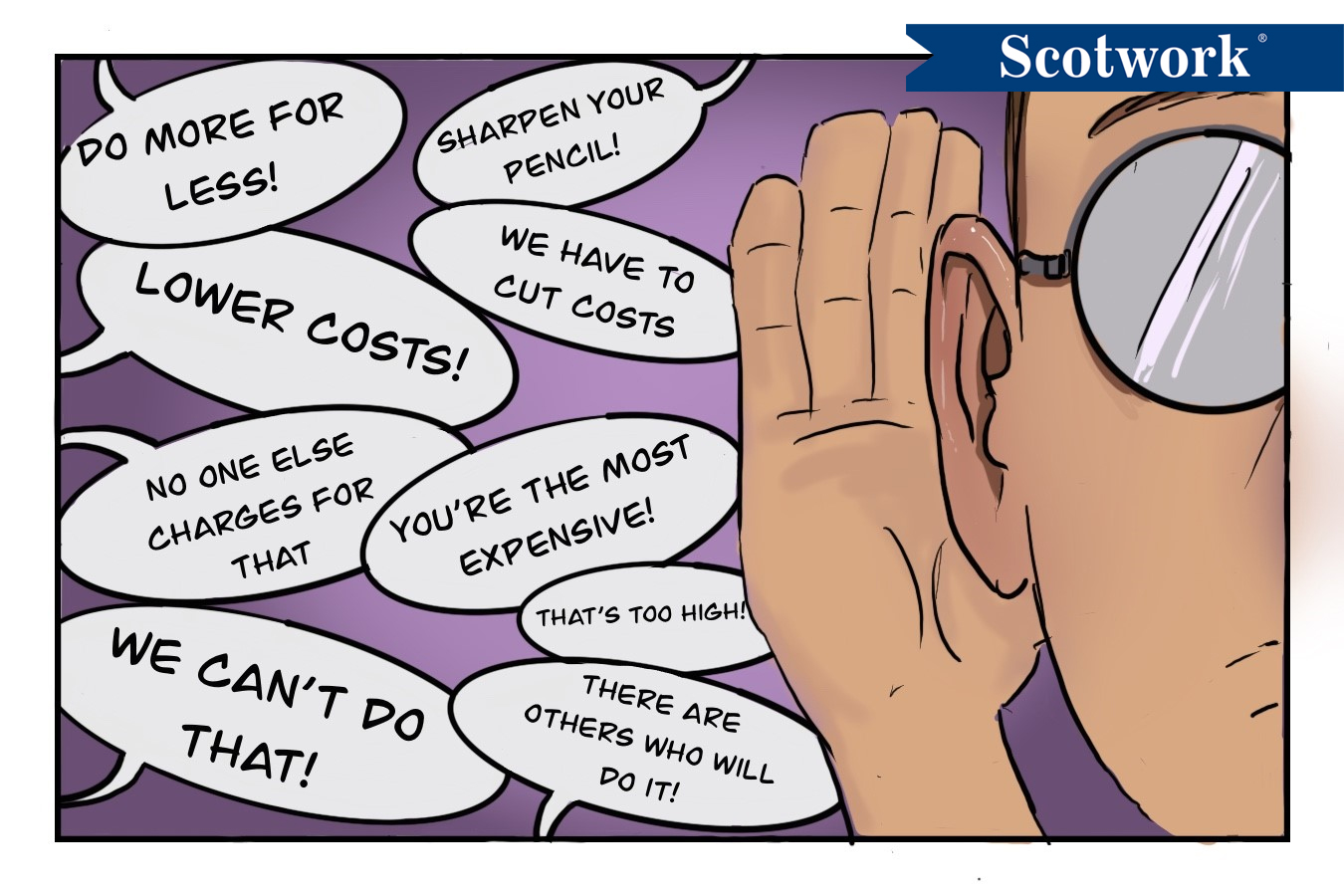We recently hosted a private webinar for a service organization about negotiating during economic uncertainty. When we booked the webinar, the macroeconomic situation was a lot more precarious than it is today. Currently, unemployment is low, consumer spending remains strong, inflation is 3% (down from 9.1% a year ago), and consumer sentiment is up 8%. All things are pointing positive. However, our client’s customers continue to deliver messages like, “Because of the economy, we need you to cut costs” or “Till things look up, we need to keep costs flat.” Our client wants to know why.
While some industries are struggling in this economy, our client’s customers are not in those industries. That’s what makes their situation so confusing and problematic. Being a service organization, our client is programmed to help their customers through these issues, but the asks are simply not syncing with reality as our client is experiencing it.
It probably comes as no surprise that negotiators will occasionally stretch the truth or use hyperbole to shift the power dynamic in their favor (shocking, I know). Why do they do that? Because it works — at least it’s worked on my client and, let’s face it, most companies that have customers they’re trying to please. That’s why, in these situations, it’s important to sort fact from fiction.
If there’s a legitimate situation that a customer needs help with, most customer-focused organizations will do what they can to help. However, if the organization isn’t careful, that mentality can be exploited. There are a few things everyone can do to separate reality from exploitation.
Don’t accept opinion as fact
Just because someone says it doesn’t mean it’s fact, even when they say, “We need to cut costs.” If you hear that, don’t jump into action and cut costs — as the adage goes, “trust but verify.” Which simply means you’re not going to call the other side a liar or outright not believe them; rather, you’re going to do more investigating to validate their claim, ensuring that it’s real and not exploitation.
Force the other side to explain further.
You’re going to verify the veracity of the statement by getting curious and asking a lot of questions. In this example, you can ask:
- What’s driving this initiative?
- What’s the target dollar amount for your reduction?
- Which is more important, cost or quality?
- Which programs do these cuts impact?
- How are you calculating the reductions?
- What happens if we can’t achieve that amount?
All you’re trying to do is gather more information to verify what they said, so that you can better assess if it’s fact or fiction.
Analytically listen
Analytical listening is when we examine not just what’s said, but how it’s said. The what/how will help you know if something is fact or fiction. For instance, it’s more likely that something is “fact” if the answers to your questions are decisive, specific, logical, and easily understood. In other words, if the statement is based in reality, the other side won’t struggle to answer your questions. However, if the answers are ambiguous, irrational, muddled, or difficult to follow, it might be because the person is struggling to fill in the gaps of their fictional statement.
If you determine that something is a fact, then you can pay it the attention that it deserves. If you determine that something is fiction, then you know there’s flexibility in how much, if any, of the demand you need to meet.
When in doubt, move cautiously, continue to revisit, and ask questions till you feel comfortable with your vetting of the situation. Find your reality.
We Can Help You Separate Reality from Exploitation
If your team’s dealing with a party that stretches the truth or uses hyperbole to shift the power dynamic in their favor, do they know how to distinguish fact from fiction? We can help! Draw on Scotwork’s nearly 50 years of real-world negotiating experience to get better deals, save time, and create value that preserves and strengthens relationships. Partner with one of our advisers to ensure you have the optimum view of your deal.

